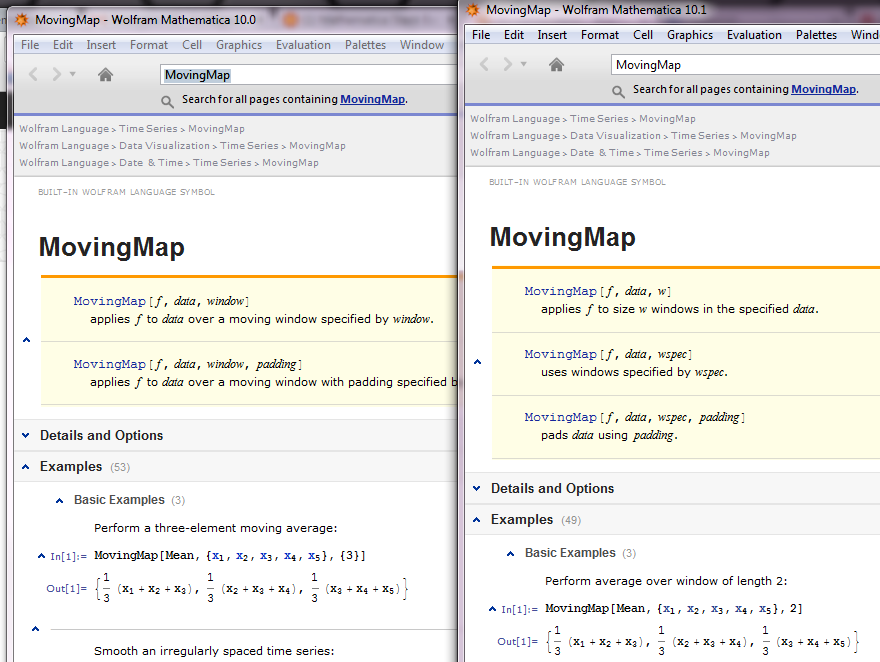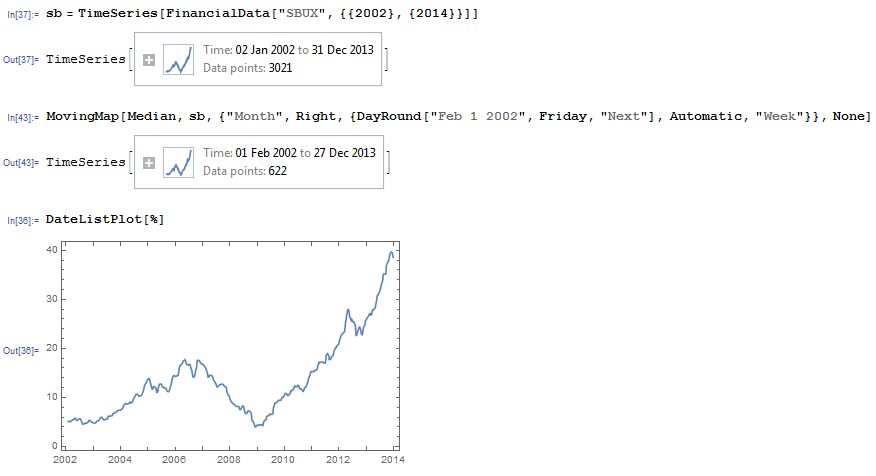The MovingMap window spec has been changed between version 10.1 and 10.0.2.
Version 10.0.2
MovingMap[h, {a, b, c, d, e, f}, 2]
(* {h[{a, b}], h[{b, c}], h[{c, d}], h[{d, e}], h[{e, f}]} *)
Here we get a moving window of 2 items as expected.
Version 10.1
MovingMap[h, {a, b, c, d, e, f}, 2]
(* {h[{a, b, c}], h[{b, c, d}], h[{c, d, e}], h[{d, e, f}]} *)
In 10.1 the same statement returns a moving window of 3 items.
Is there a way to have a bug marked as urgent. I have a few functions in a package that I made in 10.0.2 that I am using in 10.1 that use MovingMap and direct uses scattered about in notebooks.
I think all the other "moving" functions should be testing as well.
Update on outcome
The short story is that the change was accidentally omitted from 10.1 release notes which lead to it being interpreted as a bug (it is a breaking change but not a bug). Below in there is a response (unofficial) in one of the comments from a WRI employee that states WRI is looking into how this happened in order to prevent this in future. And the beat goes on.



bugstag applied as this is conventionally applied after an issue has either been confirmed by WRI as a bug or there is at least community consensus. $\endgroup$